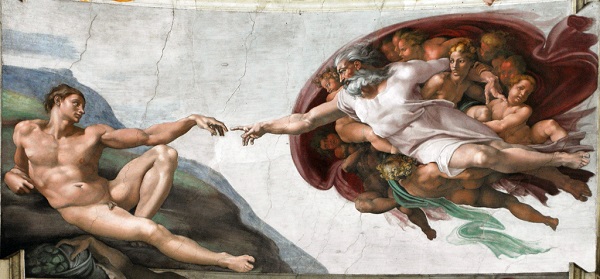 Perhaps you saw this: At the funeral service for Rev. Clementa Pinckney, the pastor of Charleston’s Emanuel African Methodist Episcopal Church, President Obama delivered a stirring eulogy. In the middle of his remarks, the President belted out “Amazing Grace”–singing a capella before being joined by mourners and members of the congregation.
Perhaps you saw this: At the funeral service for Rev. Clementa Pinckney, the pastor of Charleston’s Emanuel African Methodist Episcopal Church, President Obama delivered a stirring eulogy. In the middle of his remarks, the President belted out “Amazing Grace”–singing a capella before being joined by mourners and members of the congregation.
Ironically, he sang this verse:
Amazing Grace, how sweet the sound
that saved a wretch like me.
I once was lost, but now am found–
was blind, but now I see.
But did the President truly comprehend what he was singing? What I mean is, Does he see?
The faithful churchgoers gathered at Emanuel AME to remember their fallen pastor showed their countercultural faith, by extending forgiveness toward Dylann Roof, the brutal killer who snuffed out nine lives. Their message was unity–the kind of forgiveness and love and unity that are only possible with the help of God.
But once again, as he has done before, President Obama used his eulogy as an opportunity to drive a wedge between whites and blacks. He called the Charleston shooting
“…an act that drew on a long history of bombs, arson, shots fired at churches. Not random, but as a means of control, a way to terrorize and oppress.”
Words to inflame, not to heal. He got the people in that church on their feet, singing and applauding with him–but what was he celebrating? The end of oppression?
What happened this week in Charleston was terrible. The man who killed those nine innocent African-Americans in the church was a hater, a racist, a sorely misguided youth; but he does not represent White Americans. And the “bombs, arson, shots fired” of which Obama spoke: Those bad things have happened in the history of our nation, certainly. But those illegal actions by a misguided few do not represent America or Americans!
Emanuel AME Church has been an inspiration to our nation, showing itself to be a place of faith, a place of love, a place of healing and peace. Its members modeled the love of Christ vibrantly, and their example inspired all of us, blacks and whites alike. They showed us, in the words of Pete Seeger’s protest song “We Shall Overcome”, how to truly overcome the evil of racism and hate. Then, President Obama brought those evils back into focus with his words at the eulogy.
* * * * *
“Amazing Grace” has become a mantra for racial solidarity, true; but at its heart is the poignant story of its author, British slave trader John Newton. Newton forsook his faith while a youth, and took a job aboard a Spanish ship. He was an obscene and immature sailor, and his disobedience resulted in his being transferred to a ship in England’s Royal Navy. Once aboard, he was openly belligerent, writing songs and poetry that mocked the ship’s captain. Years later, Newton wrote in a letter about that period of his life:
“Like an unwary sailor who quits his port just before a rising storm, I renounced the hopes and comforts of the Gospel at the very time when every other comfort was about to fail me.”
![John Newton By Frerieke from The Hague, The Netherlands (Flickr: Day 20.06 _ Diversity and Unity) [CC BY 2.0 (http://creativecommons.org/licenses/by/2.0)], via Wikimedia Commons](https://wp-media.patheos.com/blogs/sites/148/2015/06/John-Newton.jpg)
By Frerieke from The Hague, The Netherlands (Flickr: Day 20.06 _ Diversity and Unity) [CC BY 2.0 (http://creativecommons.org/licenses/by/2.0)], via Wikimedia Commons
Finally he was rescued by another white slave trader; and eventually, he found himself heading back to England aboard a British ship, the Greyhound. It was while he was aboard the Greyhound that Newton’s return to faith, soulfully recounted in the hymn “Amazing Grace,” began.
One night in 1748, while the Greyhound was sailing in the North Atlantic, a violent storm came upon the ship. The waves were so rough that a sailor was swept overboard. The man had been standing in the spot which Newton had occupied just a few minutes earlier.
Newton and another mate, frightened by the waves and by what had happened to their fellow sailor, tied themselves to the ship’s pump to keep from being washed overboard. As the ship tossed on the stormy seas, Newton called out to the captain, “If this will not do, then Lord have mercy upon us!”
In his next shift on deck, Newton had eleven hours at the wheel. During that time, watching the lightning and feeling the waves crash against the bough of the ship, fearing for his life, he prayed an earnest prayer to the God he’d turned away from in his youth.
Just weeks later, safely back on land and while his boat was being repaired, Newton penned the first verse of his world famous song. It was only gradually that faith opened his eyes to the evils of the slave trade; but his journey to understanding and to faith had its beginnings during that storm while aboard the Greyhound.
To what did the first stanza of “Amazing Grace” refer? Some writers, including William Phipps who wrote an article in the Anglican Theological Review, believed that Newton saw his participation in the slave trade as his “wretchedness.” Later, Newton joined his efforts to those of a colleague, William Wilberforce, the British Member of Parliament who led the campaign in the Parliament to abolish the slave trade in the British Empire. That was eventually accomplished through the Slave Trade Act of 1807. Newton became an outspoken abolitionist.
Image of hands: By Frerieke from The Hague, The Netherlands (Flickr: Day 20.06 _ Diversity and Unity) [CC BY 2.0 (http://creativecommons.org/licenses/by/2.0)], via Wikimedia Commons











